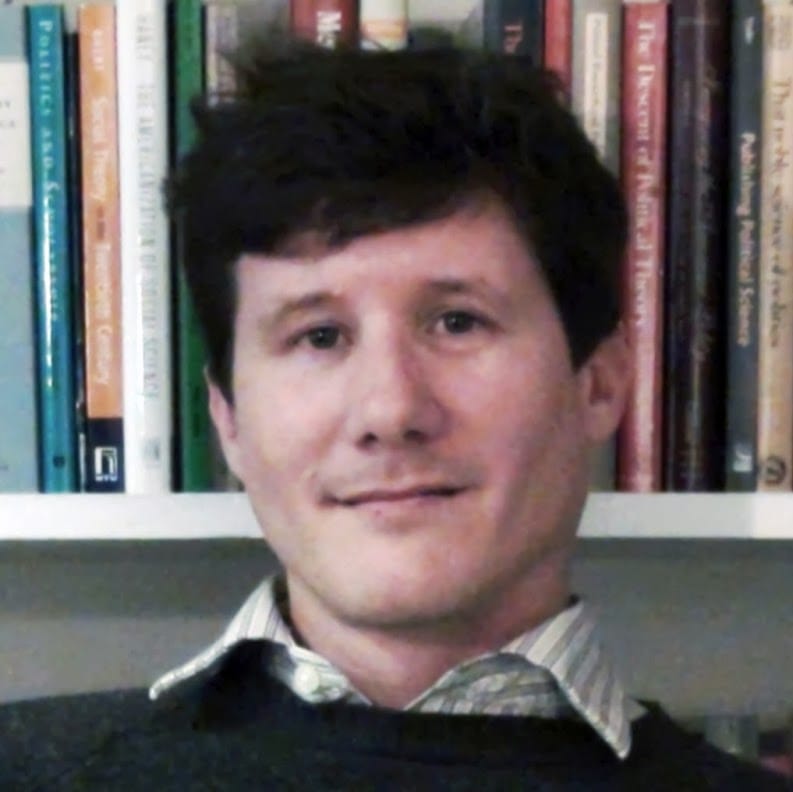While attending the 126th annual meeting in Chicago, make a point to see one—or all—of the titles in the next film festival. If brevity is indeed the soul of wit (and a witty script), then this year’s short-yet-provocative docket of films promises to be the most intellectually captivating film festival yet. Filmmakers of three of the four films will lead discussions of their work following their respective screenings. The screenings for each film will take also place in Ballroom I of the Sheraton Chicago Hotel and Towers. The following is a short description of each film; we hope to see you there:
Friday, January 6, 12:00–2:00 p.m.
A Film Unfinished
Yael Hersonski, director; Noemi Schory and Itay Ken-Tor, producers (Oscilloscope Laboratories, 2010). At the end of World War II, 60 minutes of raw film was discovered in an East German archive. Shot by the Nazis in Warsaw in May 1942, and labeled simply “Ghetto,” this footage quickly became a resource for historians seeking an authentic record of the Warsaw Ghetto. However, the later discovery of a long-missing reel, which included multiple takes and cameraman staging scenes, complicated earlier readings of the footage. A Film Unfinished presents the raw footage in its entirety, carefully noting fictionalized sequences falsely showing “the good life” enjoyed by Jewish urbanites, and probes deep into the making of a now-infamous Nazi propaganda film.
Friday, January 6, 4:30–6:30 p.m.
My Perestroika
Robin Hessman, producer, writer, and director (Red Square Productions, 2010). This film follows five ordinary Russians living in extraordinary times—from their sheltered Soviet childhood, to the collapse of the Soviet Union during their teenage years, to the constantly shifting political landscape of post-Soviet Russia. Together, these childhood classmates paint a complex picture of the dreams and disillusionment of those raised behind the Iron Curtain.
Filmmaker Robin Hessman will introduce the film and lead a discussion afterward.
Saturday, January 7, 12:00–2:00 p.m.
The Pruitt-Igoe Myth: An Urban History
(2011 John O’Connor Film Award Winner)
Chad Freidrichs, writer, director, and producer; Jaime Freidrichs, writer and producer; Paul Fehler, producer; and Brian Woodman, producer (Unicorn Stencil, 2010).The Pruitt-Igoe Myth explores the short life of the Pruitt-Igoe housing development in St. Louis, which became a potent national symbol of failure that has been used to critique Modernist architecture, attack public assistance programs, and stigmatize public housing residents. The film reassesses the complex history of Pruitt-Igoe within the larger postwar context of segregation, poverty, and urban population decline. It gives special emphasis to the stories of the residents who managed to adapt to and survive the downward spiral of vacancy, vandalism, and crime that made Pruitt-Igoe famous.
Director Chad Freidrichs will introduce the film and lead a discussion afterward.
Saturday, January 7, 5:00–7:00 p.m.
On These Shoulders We Stand
Glenne McElhinney, producer, writer, and director (Impact Stories: California’s LGBT History, 2009). On These Shoulders We Stand is an illuminating historical account of gay life and activism in Los Angeles, told by the people who lived it. The film chronicles gay life from the 1950s into the early 1980s, interweaving first-person accounts from eleven elders of the lesbian, gay, bisexual, and transgender community in Los Angeles with seldom-seen archival materials to tell the story of two cities, one with a substantial, vibrant gay community, and the other, a city obsessed with rendering that community invisible or imprisoned.
Project director Glenne McElhinney will introduce the film and lead a discussion afterward.



